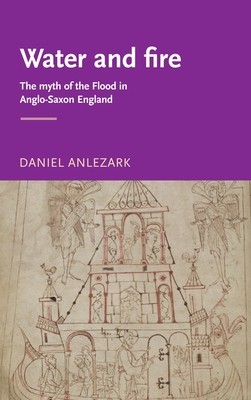
- We will send in 10–14 business days.
- Author: Daniel Anlezark
- Publisher: Manchester University Press
- ISBN-10: 071906399X
- ISBN-13: 9780719063992
- Format: 14 x 21.6 x 2.1 cm, softcover
- Language: English
- SAVE -10% with code: EXTRA
Reviews
Description
Noah's Flood is one of the Bible's most popular stories, and flood myths survive in many cultures today. This book presents the first comprehensive examination of the incorporation of the Flood myth into the Anglo-Saxon imagination. Focusing on literary representations, it contributes to our understanding of how Christian Anglo-Saxons perceived their place in the cosmos. For them, history unfolded between the primeval Deluge and a future - perhaps imminent - flood of fire, which would destroy the world. This study reveals both an imaginative diversity and shared interpretations of the Flood myth. Anglo-Saxons saw the Flood as a climactic event in God's ongoing war with his more rebellious creatures, but they also perceived the mystery of redemption through baptism.
Anlezark studies a range of texts against their historical background, and discusses shifting emphases in the way the Flood was interpreted for diverse audiences. The book concludes with a discussion of Beowulf, relating the epic poem's presentation of the Flood myth to that of other Anglo-Saxon texts.EXTRA 10 % discount with code: EXTRA
The promotion ends in 17d.11:47:53
The discount code is valid when purchasing from 10 €. Discounts do not stack.
- Author: Daniel Anlezark
- Publisher: Manchester University Press
- ISBN-10: 071906399X
- ISBN-13: 9780719063992
- Format: 14 x 21.6 x 2.1 cm, softcover
- Language: English English
Noah's Flood is one of the Bible's most popular stories, and flood myths survive in many cultures today. This book presents the first comprehensive examination of the incorporation of the Flood myth into the Anglo-Saxon imagination. Focusing on literary representations, it contributes to our understanding of how Christian Anglo-Saxons perceived their place in the cosmos. For them, history unfolded between the primeval Deluge and a future - perhaps imminent - flood of fire, which would destroy the world. This study reveals both an imaginative diversity and shared interpretations of the Flood myth. Anglo-Saxons saw the Flood as a climactic event in God's ongoing war with his more rebellious creatures, but they also perceived the mystery of redemption through baptism.
Anlezark studies a range of texts against their historical background, and discusses shifting emphases in the way the Flood was interpreted for diverse audiences. The book concludes with a discussion of Beowulf, relating the epic poem's presentation of the Flood myth to that of other Anglo-Saxon texts.

Reviews